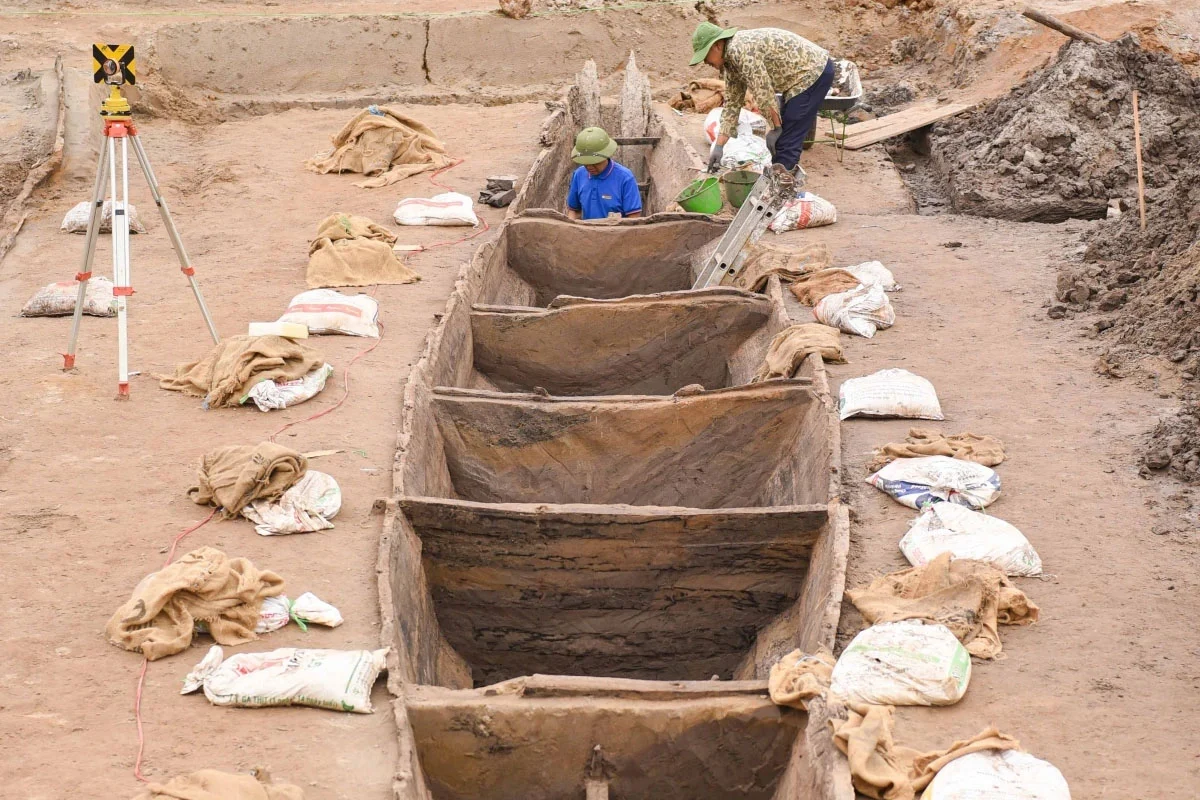Two preserved wooden vessels have been discovered in Thuận Thành, a town in the Vietnamese province of Bắc Ninh.
According to a press statement issued by the Department of Culture, Sports, and Tourism of Bac Ninh Province, local residents unexpectedly discovered the vessels while renovating a fishpond.
After informing local authorities, archaeologists from the Institute of Archaeology initiated excavations to fully uncover the remains, which experts believe could be historic merchant vessels once used for navigating the Dau River.
Both vessels were found 2 metres apart, with one measuring 15 metres long by 2.2 metres wide, while the other is 14 metres long by 1.6 metres wide. A wooden bar at the bow connects the two vessels, suggesting they may have been permanently linked.
Preliminary studies indicate that both vessels remain structurally sound. However, archaeologists are still analysing the construction materials to determine the age and type of wood used.

The theory that the boats were merchant vessels is supported by their discovery near the Thien Duc-Duong River that flows near the Luy Lau Citadel, a significant trading hub and the first capital of the Han commandery of Jiaozhi.
According to Dr. Pham Van Trieu, Deputy Head of the Department of Historical Archaeology at the Institute of Archaeology: “This is a historically and culturally significant discovery. While the boats’ exact age remains unknown, if they are dugout canoes, they could date back to an early period in history.”
Mr. Vuong Quoc Tuan, Chairman of the People’s Committee of Bac Ninh Province, has directed local authorities to commission further studies to assess the historical significance of the vessels and implement measures for the site’s protection and preservation.
Header Image Credit : Institute of Archaeology
Sources : Department of Culture, Sports, and Tourism of Bac Ninh Province





